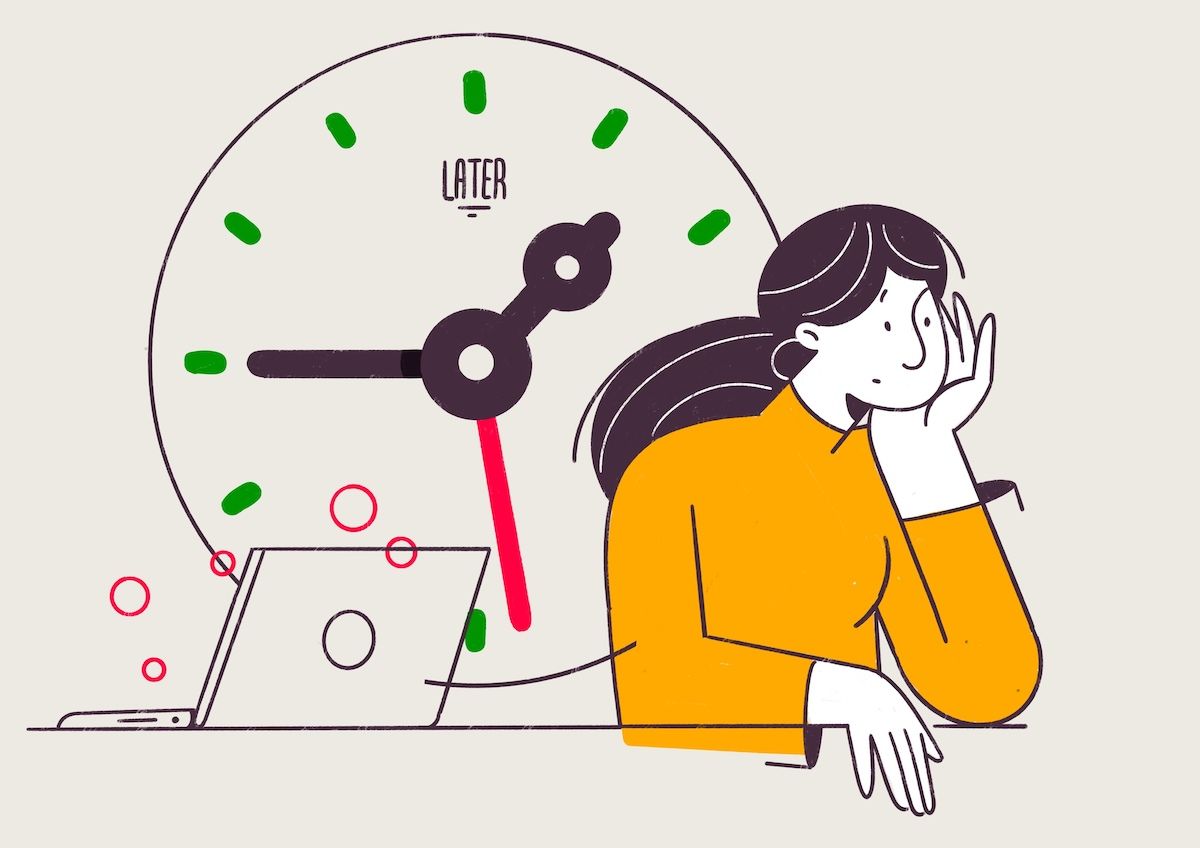Procrastination Among Students
by Ankit Kumar, BFIA’24
I was supposed to write this article a week ago and guess what, I am writing it hours before the deadline for submissions. I had subconsciously convinced myself that I’ll do it ‘later’. This is a prime example of procrastination.
Procrastination is common among all of us, especially students. Averting any activity/work until later.
It is not unusual for us students to crib about deadlines and pressure but instead of studying, we often succumb to procrastination. When the deadlines draw near, a time bomb starts ticking and the productive part of you wakes up out of nowhere, ready to pull all-nighters. But is it healthy?
First, we need to understand the reason behind procrastination. The human brain is hungry for dopamine and stimulation, and this need for momentary stimulation and short attention span is on the rise thanks to Instagram Reels and Shortform 30-60 second video content but that is a topic for some other day. When a ‘want to’ or ‘need to’ turns into a ‘HAVE to’, you know you are in trouble. Most things that you want to do in your free time don’t even have deadlines, so the guitar you bought last week now just sits there on the table. I am not Ankur Warikoo but here are a few pointers that worked for my last semester.
- Make a schedule: Whatever you need to do, schedule it, and set up reminders to let you know when it is time. Make sure you keep track of each piece of your work project so you do not get behind. Putting them on your calendar is a smart idea.
- Do not let it pile up: Even though we know it is a necessity, it is difficult to convince ourselves. One can just ignore thinking it would not make a big difference but it does in the long run when everything starts piling up. Naturally, Now you have a lot more to do in much less time.
- Don’t use your brain: No one doubts your capability to remember a list of to-do’s, but don’t bother. Instead list down your to-do’s somewhere, on a notepad, WhatsApp chat anywhere. Just jot them down.
- Reward yourself: Practice Instrumental conditioning. Reward yourself on the completion of tasks. It’s a misconception that intelligent people do not have to work hard. Enjoy putting time and effort into your work.
Take yourself and your promise seriously. Do not get hypnotized by your excuses. You are not trying to get away with doing as little as possible, you are focusing on building your best version.




Comments